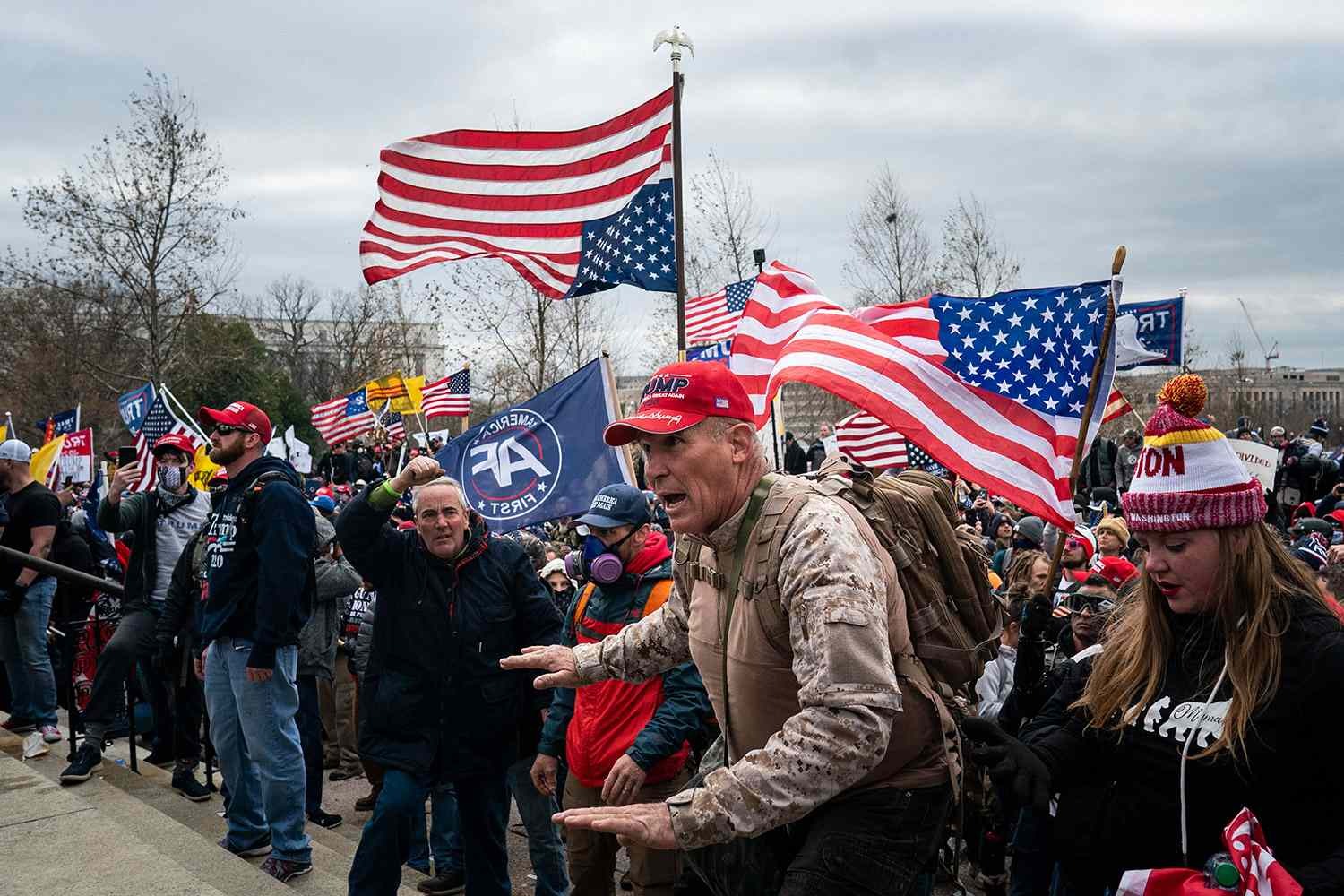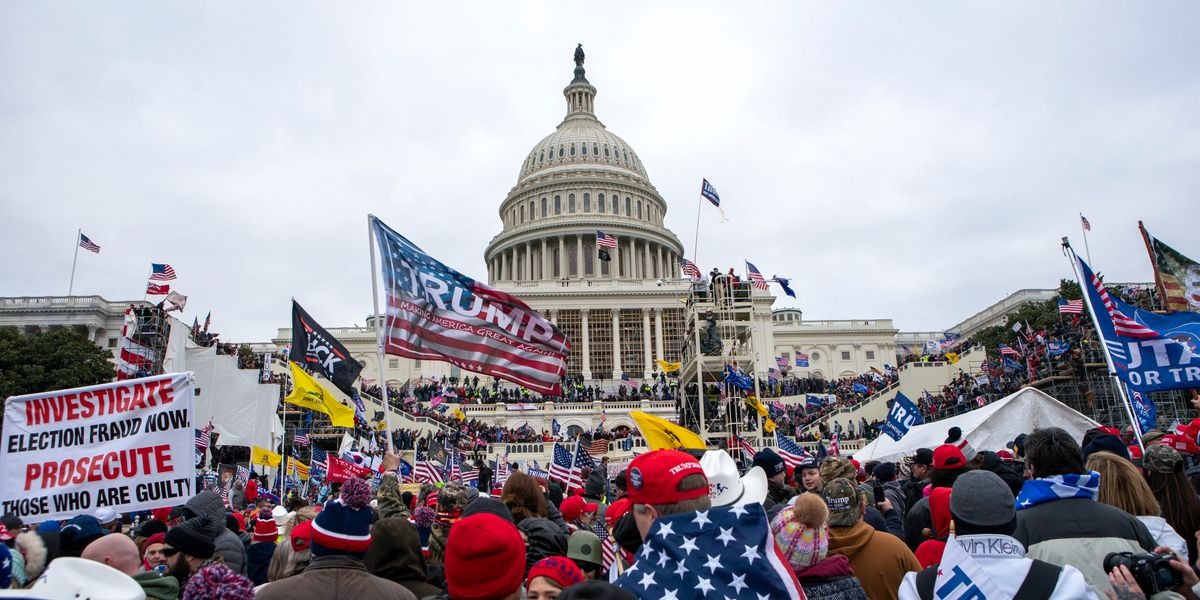About 150 people gathered at a VFW in western Minnesota on the third anniversary of the January 6th riot at the U.S. Capitol to view a documentary that places much of the blame for the violence on law enforcement escalation.
Among those present were three Minnesotans facing federal charges related to the riot and two GOP state representatives. Steve Boyd, a Republican congressional candidate for Minnesota’s Seventh District, introduced the film, calling it a compelling narrative.
Recently, the Epoch Times, a far-right media outlet linked to the Falun Gong movement, showed part two of the documentary at a conservative women’s event in Burnsville Library.

Minnesota Republicans (Credits: People)
Tayler Rahm, a Republican candidate for Minnesota’s Second Congressional District, attended the screening. Earlier, Rahm suggested in a debate that Capitol rioters were being treated more harshly than those involved in the Minneapolis riots following George Floyd’s murder.
Minnesota state Rep. Mike Wiener, R-Long Prairie, urged people to reserve judgment on the Westbury family members charged in connection with the Capitol riot, emphasizing their innocence until proven guilty.
Many Republicans, both in Minnesota and nationally, are expressing more sympathy for the January 6th rioters and downplaying the severity of the violence as former President Donald Trump eyes a return to the White House.
Boyd, in his challenge against GOP U.S. Rep. Michelle Fischbach, questioned whether the rioters were being unfairly targeted for opposing political power.
He noted a perceived bias against individuals associated with Trump. Boyd clarified that while those who committed violent acts should be punished, he didn’t see the logic in prosecuting those who entered the Capitol peacefully and left without incident.
Rosemarie Westbury, whose husband and sons face charges related to January 6th, characterized the day as inspirational rather than insurrectionist, acknowledging some violence but attributing it to police actions.
Minnesota DFL chair Ken Martin criticized this revisionist history, emphasizing that January 6th was not a tourist event but a violent attack on the Capitol that left over 140 police officers injured.
A poll by The Washington Post and the University of Maryland found that 42% of Republicans believed punishments for January 6th were too harsh, while about 70% felt the incident was overblown and it was time to move on.
A quarter of those polled speculated that the FBI might have instigated the riot, a theory propagated by some conservative media outlets.
Michael Hanmer, director of the University of Maryland’s Center for Democracy and Civic Engagement, noted an acceleration of conspiracy theories within the Republican Party, suggesting that these narratives are being promoted by leaders in a new way.
Republican members of Congress have contributed to these revisionist histories, with some referring to riot defendants as “hostages” and denying that an insurrection occurred.
The silence of Republican lawmakers in Minnesota’s congressional delegation on this issue contrasts with their immediate post-riot statements condemning the violence.
The Democratic Party chair expressed concern over the mainstream acceptance of conspiracy theories and revisionist histories within the GOP, warning against attempts to rewrite the events of January 6th.
Democratic U.S. Rep. Dean Phillips, who was present in the House chamber during the riot, emphasized the seriousness of the event, describing the fear and chaos as rioters breached the Capitol.
Gregg Peppin, a GOP consultant, acknowledged January 6th as a riot but attributed the party’s election skepticism to the changes forced by COVID-19 in the 2020 election, which led some to question its integrity.
While reviews in various states have upheld President Biden’s win, skepticism about the election outcome persists among some Republicans. The aftermath of January 6th continues to reveal deep divisions within the Republican Party and raises questions about the future of American democracy.























